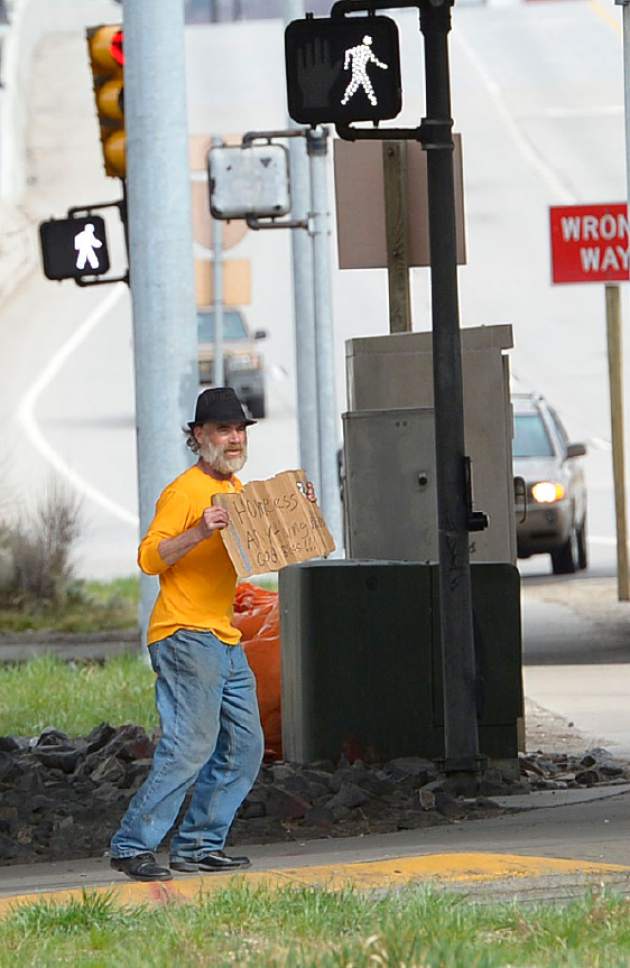This is an archived article that was published on sltrib.com in 2017, and information in the article may be outdated. It is provided only for personal research purposes and may not be reprinted.
The House voted Friday to outlaw panhandling at freeway exits and along high-speed highways by taking a different approach than previous, similar laws that were struck down as unconstitutional.
The House voted 72-0 to pass HB161 sponsored by Rep. Steve Eliason, R-Sandy. It now goes to the Senate.
Rather than directly targeting panhandling — which has been ruled a form of protected speech by U.S. District Court Judge Ted Stewart — Eliason said his bill "is focused on pedestrian safety."
He said it still allows panhanding, but "if you are going to do that, you should do it in a safe place instead of a lane of traffic."
It prohibits a pedestrian and driver from exchanging money or property on freeways, highways and paved roads with a speed limit over 35 miles per hour.
Past laws have restricted panhandling on sidewalks or along all roadways, and lost court challenges on the basis of First Amendment protection.
The bill also may ban some roadside solicitations for charitable groups, such as the "Fill the Boot" campaign organized by the Professional Firefighters of Utah union.
Its president, Jack Tidrow, said recently that while the "Fill The Boot" would be affected by bill, collections could be moved off the road and into other public spaces.
"There are still ways to collect money," Tidrow said.
Marina Lowe, legislative and policy counsel for the American Civil Liberties Union of Utah, also recently said the ACLU is always concerned about bills that impact panhandling, but does not have specific objections to Eliason's proposal



